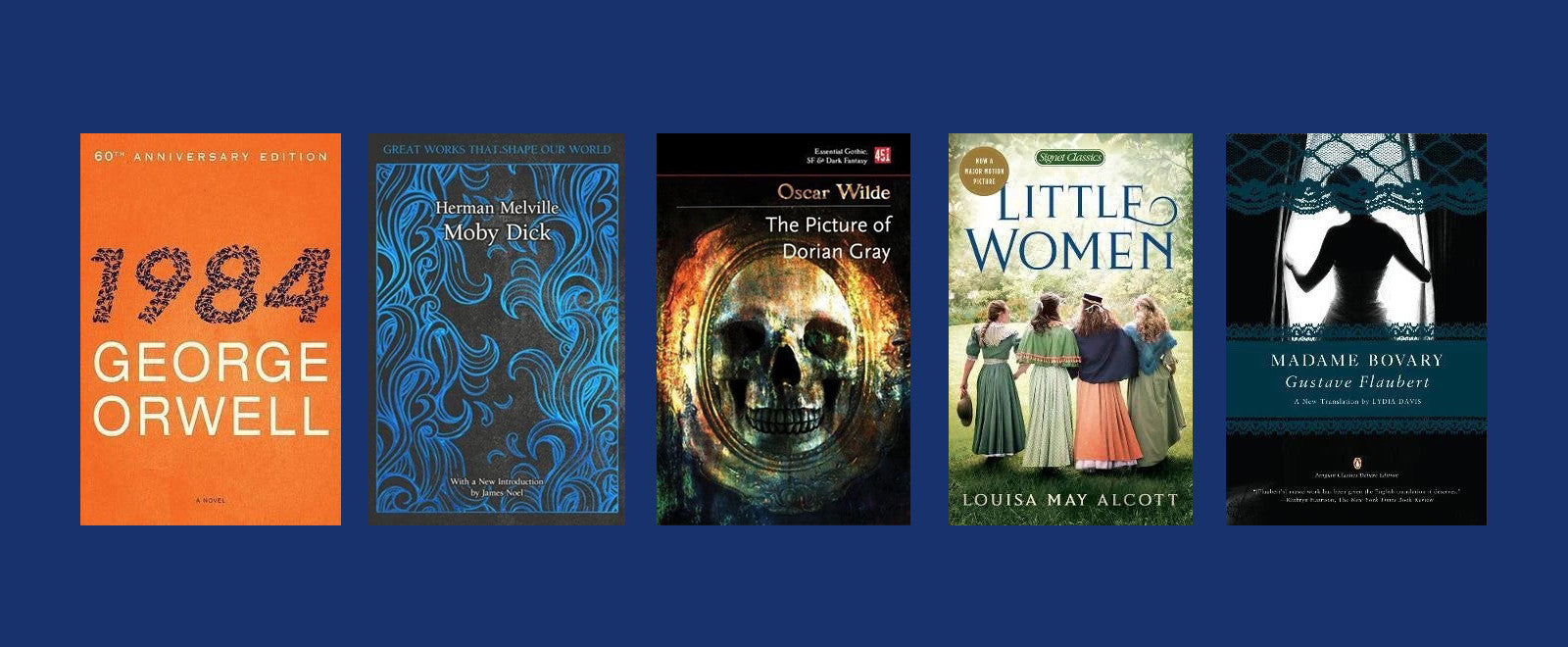In the vast expanse of literature, certain pieces endure over time, transcending generations and making an indelible mark on the literary landscape. As we delve into these timeless classics, we embark on an exhilarating journey through the complexities of human nature, society, and existence.
Moby Dick: Herman Melville's Moby Dick, published in 1851, surpasses being a mere tale of man's obsession with a white whale. It delves into the human psyche, the repercussions of unbridled ambition, and a metaphorical voyage into the depths of darkness. The captain's relentless pursuit of Moby Dick symbolizes a quest for meaning and purpose in a world fraught with uncertainties.
Lolita: Vladimir Nabokov's Lolita, though controversial, skillfully examines obsession, manipulation, and the blurred lines between good and evil. Humbert Humbert's narrative challenges readers to confront their own moral compass and grapple with uncomfortable truths hidden beneath societal norms.
1984: George Orwell's 1984, published in 1949, remains a chilling prophecy of a dystopian future. Navigating through the oppressive regime of Big Brother and the thought police, Orwell's warning serves as a stark reminder of the perils of unchecked government power and the erosion of individual freedoms.
Twenty Thousand Leagues Under the Sea: Jules Verne's timeless classic, Twenty Thousand Leagues Under the Sea, published in 1870, transports readers on a fantastical underwater odyssey with Captain Nemo. Verne's foresight into technological possibilities and exploration captivates the imagination, while themes of isolation and the consequences of unchecked scientific ambition reverberate through time.
The Picture of Dorian Gray: Oscar Wilde's exploration of decadence and the corrupting influence of aestheticism in The Picture of Dorian Gray remains a timeless commentary on the pursuit of pleasure and the consequences of a life without moral boundaries. Wilde's wit and social criticism shine through the gripping narrative of a man who trades his soul for eternal youth.
The Trial: Franz Kafka's The Trial is a haunting exploration of the absurdity of bureaucracy and the quest for justice, drawing readers into a nightmarish world where the protagonist, Josef K., faces arrest and trial for an unspecified crime. Kafka's surreal storytelling challenges societal norms and exposes the arbitrary nature of power.
Little Women: Louisa May Alcott's Little Women, published in 1868, is a heartfelt exploration of family, love, and the pursuit of dreams. The March sisters - Meg, Jo, Beth, and Amy - navigate womanhood, independence, and societal expectations in post-Civil War America. Alcott's themes of resilience and sisterhood resonate across generations.
Madame Bovary: Gustave Flaubert's Madame Bovary, published in 1857, is a poignant examination of the consequences of romantic idealism and societal pressures. Emma Bovary's yearning for passion and escape leads to tragic outcomes, illustrating the dangers of chasing an unrealistic and unattainable ideal.
Conclusion: Reflecting on the enduring allure of these literary masterpieces, we acknowledge their ability to transcend time and illuminate universal aspects of the human condition. Through their exploration of love, morality, societal norms, and human existence, these timeless works continue to captivate and inspire readers, beckoning them to explore their own understanding and interpretation of the world's complexities.

